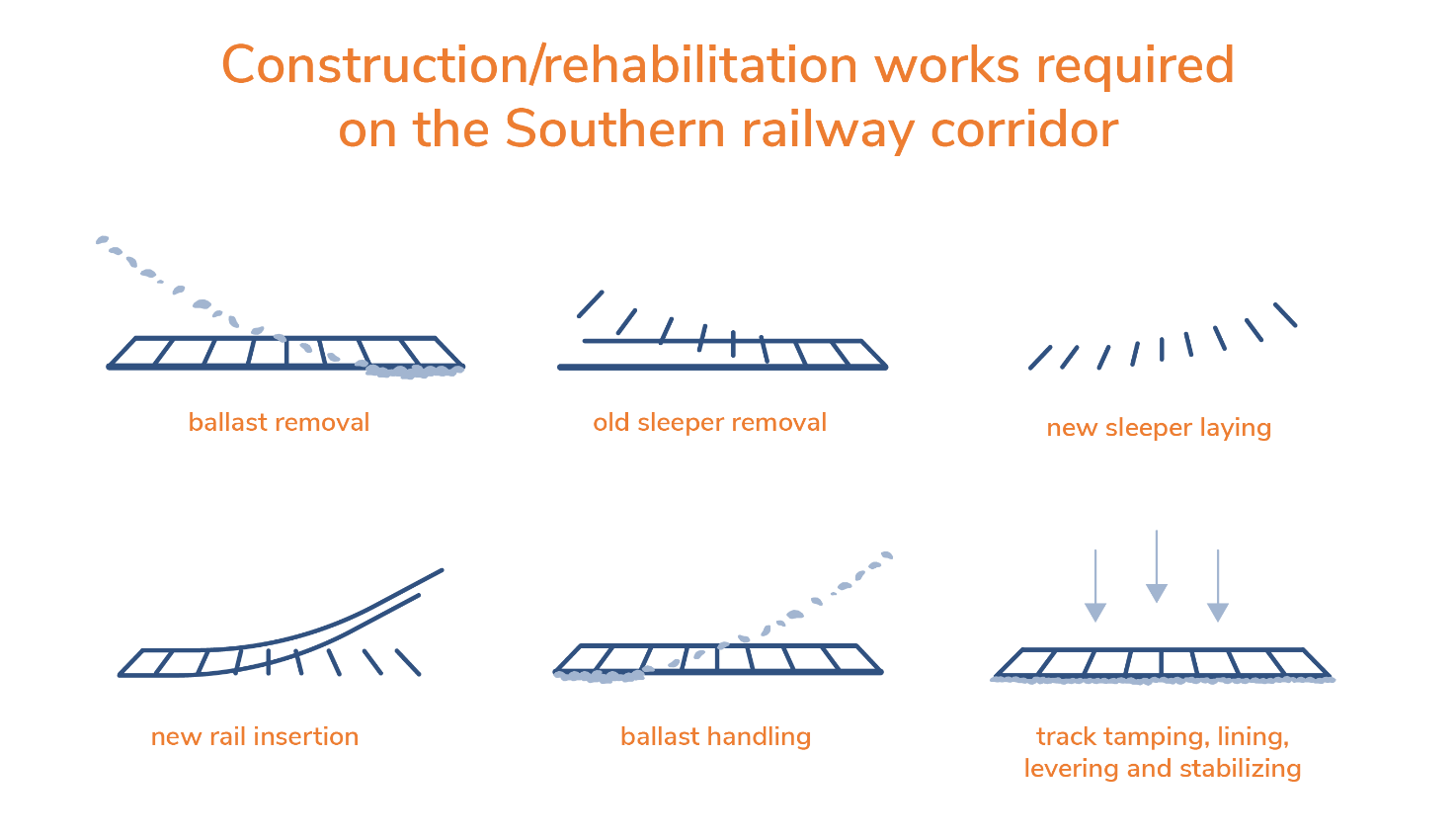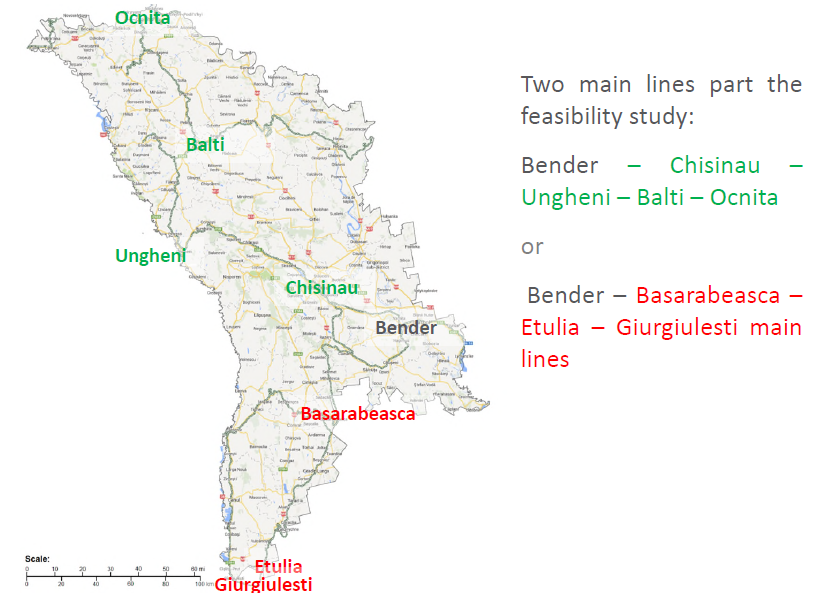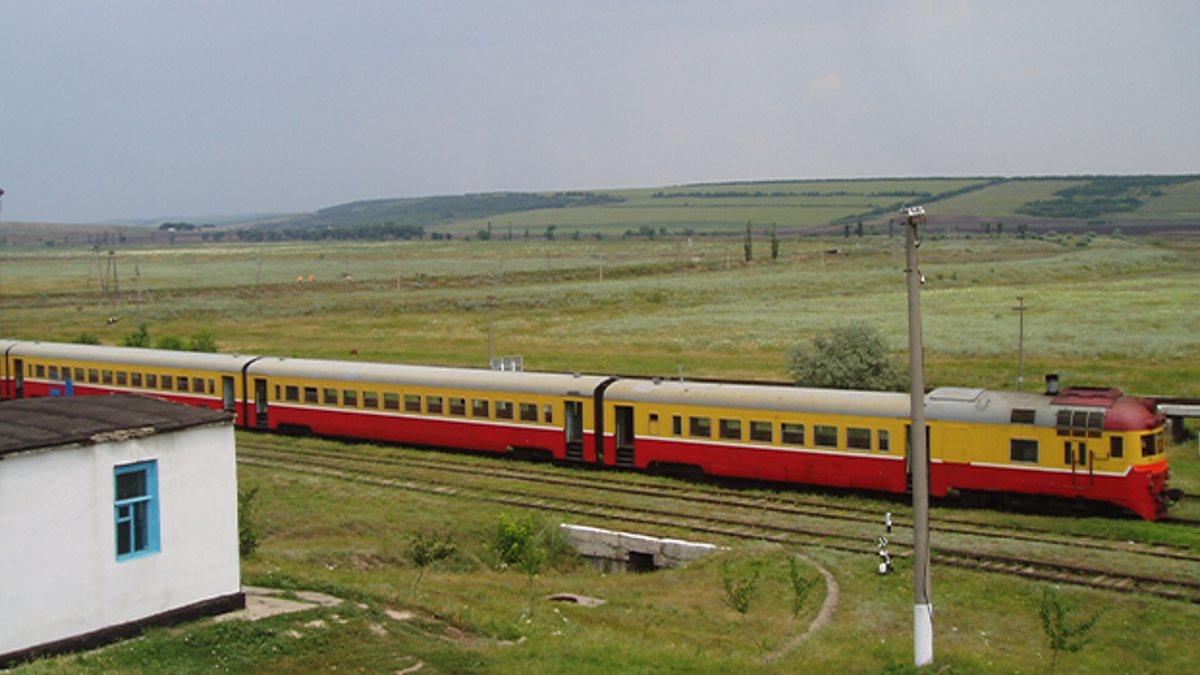
The European Bank for Reconstruction and Development (EBRD) provided a loan to the State Company «Calea Ferata din Moldova» (CFM or Moldova Railways) for the implementation of the “Moldovan Railways Restructuring Project”, aiming at the improvement of the railway infrastructure and modernisation of the rolling stock, to enable CFM enhancing efficiency and safety of railway services and improving the overall performance of its railway operations. The European Investment Bank (EIB) provided a parallel loan to co-finance it, which resulted in a total project budget of EUR 100.75 million divided into two tranches (Tranche 1: EUR 45.75 million and Tranche 2: EUR 55.00 million).
NTU supported the implementation of the project entitled “Feasibility Study for Railway Infrastructure Need Assessment in Moldova”. The objective was to carry out technical, economic and environmental /social due diligence on the priority investments for the rehabilitation works of the Moldovan rail infrastructure, under the Priority Investment Programme (PIP) to be financed under Tranche 2.

Implementation
NTU supported the work carried out on the technical assessment of the rail infrastructure in Moldova in order to obtain the overall current status of the rail infrastructure and major technical problems identified to achieve the Project purpose. The Team of Experts mobilised for this task particularly:
-
Collected all available technical data, reports and studies supplied by the CFM and other relevant stakeholders. Information collected included, among others: Permanent way including rails, fasteners, sleepers, ballast, and underlying subgrade; Structures including bridges and culverts, retaining walls, and tunnels; Signalling and communication systems; Safety problems; etc.
-
Identified the critical issues, including capacity limiting bottlenecks, infrastructure sections/elements in a critical or particular pure state that require inspection on site
-
Defined the functional requirements/design standards, in order to propose rail infrastructure rehabilitation projects complying with national regulations and international best practices
Based on this first step, NTU provided support in the identification of a realistic number of technically feasible project options regarding the rail sections that required major rehabilitation works, taking into consideration the available budget for Tranche 2.
Additionally, NTU undertook an Environmental and Social Appraisal of the proposed Priority Investment Programme which led to an Environmental and Social Action Plan including applications for the screening decisions on environmental and social impact appraisal.
Finally, NTU supported the screening of the project options selected on the basis of a Cost-Benefit Analysis of each of the identified project options. The shortlist of priority projects was specified and a realistic investment and procurement strategy as well as the Priority Investment Programme were provided including a detailed time schedule for the implementation phase, the financing programme, the values of the performance parameters of the infrastructure, the values for the main technical parameters and the technical specifications and standards to be applied for the design.
Impact
NTU took part in this Feasibility Study, which contributed to setting the basis for railway infrastructure modernisation and the enhancement of safety, efficiency, and performance standards in the rail sector in Moldova. It also aimed to improve the quality of rail services provided to users. The services also provided support in increasing railway transport capacity, reducing railway travel times and aligning the conditions and features of the railway infrastructure of Moldova with European standards and the existing European regulations.

SDGs





